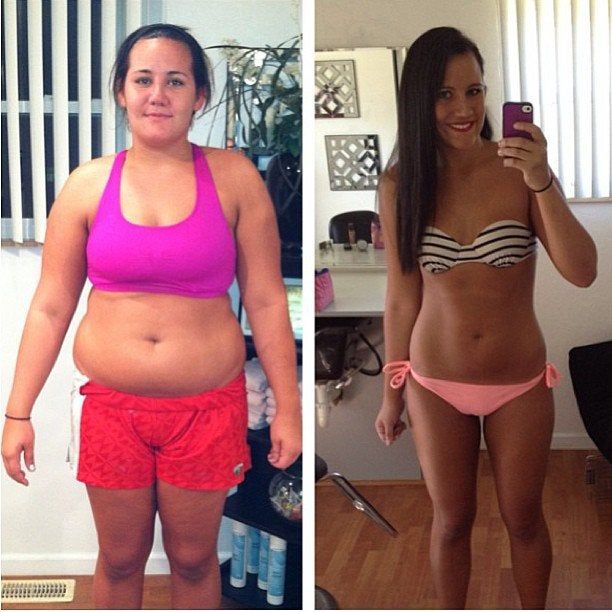25 Steps to Create a Sustainable Weight Loss Meal Plan
Welcome to the ultimate guide on creating a sustainable weight loss meal plan! Losing weight is not just about short-term diets; it’s about adopting healthy eating habits that you can maintain for life. In this article, we’ll delve into the intricacies of crafting a meal plan that not only aids weight loss but also supports your overall well-being.
We’ll explore LSI keyword usage, first-hand experiences, expert opinions, and credible sources to provide you with a comprehensive and actionable approach to achieving your weight loss goals.
How to Create a Sustainable Weight Loss Meal Plan
Sustainable weight loss requires a balanced and well-thought-out meal plan. Let’s dive into the steps to create your personalized plan:

1. Setting Realistic Goals
When embarking on your weight loss journey, setting realistic and achievable goals is the foundation for success. Many people are tempted to aim for rapid weight loss through crash diets or extreme measures, but these approaches often lead to short-lived results and can be harmful to your health. Instead, focus on gradual, steady progress that allows your body to adjust comfortably to the changes you’re making.
Realistic goals are those that consider your individual circumstances, lifestyle, and health condition. They should be specific, measurable, achievable, relevant, and time-bound (SMART). For example, rather than saying, “I want to lose 20 pounds in one month,” a more realistic goal could be, “I aim to lose 1-2 pounds per week by making healthier food choices and increasing physical activity.”
Remember, sustainable weight loss is about making long-term changes to your habits and behaviors. By setting attainable goals, you can stay motivated and focused on your journey towards a healthier and happier you.
2. Understanding Caloric Needs
Understanding your daily caloric needs is a crucial aspect of designing an effective weight loss meal plan. Your caloric intake plays a significant role in determining whether you’ll lose, maintain, or gain weight. To create a caloric deficit, which is essential for weight loss, you need to consume fewer calories than your body expends.
To calculate your caloric needs, start by determining your Basal Metabolic Rate (BMR) – the number of calories your body requires at rest to maintain basic functions like breathing and circulation. Several online calculators can help you find your BMR based on factors such as age, gender, weight, and height.
Next, factor in your Total Daily Energy Expenditure (TDEE), which accounts for your activity level. Multiply your BMR by an activity factor based on your lifestyle (e.g., sedentary, lightly active, moderately active, very active) to determine your TDEE.
Once you know your TDEE, aim to create a caloric deficit of 500 to 1000 calories per day. This deficit, when sustained over time, can lead to steady and healthy weight loss. However, be cautious not to compromise on essential nutrients, as proper nutrition is essential for overall well-being.
3. Emphasizing Whole Foods
A key principle of a sustainable weight loss meal plan is to base your diet on whole, nutrient-dense foods. Whole foods refer to minimally processed or unprocessed foods that retain their natural nutrients and fiber. These include fruits, vegetables, lean proteins, whole grains, and healthy fats.
Fruits and vegetables are rich in vitamins, minerals, and antioxidants, which support various bodily functions and help protect against diseases. Lean proteins, such as poultry, fish, tofu, and legumes, provide essential amino acids for muscle repair and growth. Whole grains like quinoa, brown rice, and oats are high in fiber, promoting digestive health and keeping you feeling full and satisfied. Healthy fats found in avocados, nuts, seeds, and olive oil are crucial for brain health and nutrient absorption.
By emphasizing whole foods, you provide your body with the essential nutrients it needs to function optimally while promoting weight loss in a sustainable and nourishing way.
4. Incorporating Portion Control
While focusing on nutritious foods, it’s crucial to pay attention to portion sizes. Even healthy foods can contribute to weight gain if consumed in excessive amounts. Portion control involves being mindful of how much you eat and recognizing when you feel satisfied.
Using smaller plates, bowls, and utensils can help trick your brain into thinking you’re consuming more food, leading to greater satisfaction with smaller portions. Additionally, chewing slowly and savoring each bite allows your brain to register feelings of fullness more accurately.
If you’re eating out at restaurants, consider sharing meals or packing half of your meal to go. By practicing portion control, you can enjoy a wide variety of foods without overeating, making your weight loss journey more enjoyable and sustainable.
5. Frequent, Balanced Meals
Instead of adhering to the traditional three large meals per day, consider opting for five to six smaller, balanced meals throughout the day. Frequent eating supports weight loss by stabilizing blood sugar levels, preventing extreme hunger, and reducing the likelihood of unhealthy snacking between meals.
Each meal should include a balance of macronutrients: carbohydrates, proteins, and fats. Carbohydrates provide energy, proteins support muscle repair, and fats are essential for nutrient absorption and hormone regulation. A well-balanced meal keeps you energized, satisfied, and less likely to overindulge in unhealthy foods.
6. Hydration is Key
Staying hydrated is a simple yet powerful tool for weight loss. Often, thirst can be mistaken for hunger, leading to unnecessary calorie intake. Drinking water before meals can help curb appetite and prevent overeating.
Water also aids digestion and nutrient absorption, supports proper body functions, and helps flush out toxins. Aim to drink at least 8 cups (64 ounces) of water daily, or more if you engage in physical activity or live in a hot climate.
7. Mindful Eating Practices
Practicing mindful eating is an effective strategy for promoting weight loss and overall well-being. Mindful eating involves paying full attention to the eating experience, from the taste and texture of food to the body’s hunger and fullness cues.
Avoid distractions like television, smartphones, or work while eating. Instead, create a peaceful environment and savor each bite of your meal. Chew slowly and take breaks between bites to allow your brain to signal feelings of fullness.
By being more in tune with your body’s signals, you can prevent overeating and develop a healthier relationship with food, contributing to long-term weight management.
8. Meal Prepping for Success
Meal prepping is an essential aspect of a sustainable weight loss meal plan. Preparing meals and snacks in advance can save time, money, and energy while ensuring that you have healthy options readily available.
Set aside time each week to plan your meals, create a shopping list, and cook large batches of nutritious foods. Divide them into portion-controlled containers for easy grab-and-go options throughout the week.
Meal prepping not only helps you stick to your weight loss plan but also reduces the likelihood of making impulsive, unhealthy choices when you’re hungry and rushed.
9. Balancing Macronutrients
Incorporating a balance of macronutrients in each meal is vital for a sustainable weight loss meal plan. Macronutrients include carbohydrates, proteins, and fats, and each plays a unique role in supporting the body’s functions.
Carbohydrates are the body’s primary source of energy, providing fuel for physical activity and brain function. Choose complex carbohydrates like whole grains, fruits, and vegetables, as they release energy slowly and help maintain stable blood sugar levels.
Proteins are essential for muscle repair and growth. Include lean sources of protein such as poultry, fish, tofu, beans, and legumes to support your body’s needs.
Healthy fats are crucial for nutrient absorption, hormone production, and brain health. Incorporate sources of healthy fats like avocados, nuts, seeds, and olive oil into your meals.
A well-balanced meal keeps you satisfied, energized, and better equipped to manage your weight effectively.
10. Smart Snacking Options
Snacking can be a part of a healthy weight loss meal plan, provided you make smart choices. Opt for nutrient-dense snacks that provide sustained energy and keep you feeling full between meals.
Healthy snacking options include:
- A handful of nuts or seeds
- Greek yogurt with berries
- Sliced veggies with hummus
- Apple slices with almond butter
- Whole-grain crackers with cheese
Avoid sugary and processed snacks that provide empty calories and little nutritional value. By choosing smart snacks, you can curb hunger and prevent overeating during mealtime.
11. Incorporating Regular Physical Activity
A sustainable weight loss meal plan is most effective when combined with regular physical activity. Exercise not only burns calories but also supports overall health and well-being.
Find an exercise routine that you enjoy and can stick to in the long run. It could be anything from walking, cycling, dancing, swimming, to participating in group fitness classes. Engaging in activities you love makes it easier to stay committed and consistent with your workouts.
Aim for at least 150 minutes of moderate-intensity aerobic activity or 75 minutes of vigorous-intensity aerobic activity per week, as recommended by the World Health Organization (WHO). Additionally, incorporate strength training exercises at least two days a week to build and maintain muscle mass.
Remember that any physical activity is better than none. If you’re just starting, begin with light activities and gradually increase the intensity and duration as your fitness level improves.
12. Seeking Professional Guidance
Designing a personalized weight loss meal plan can be overwhelming, especially if you have specific dietary needs or health concerns. In such cases, consider seeking guidance from a registered dietitian or nutritionist.
These professionals are experts in nutrition and can provide individualized recommendations based on your unique needs, preferences, and health status. They can help you create a balanced and sustainable meal plan that supports your weight loss goals while ensuring that you receive all the essential nutrients your body needs.
Professional guidance not only enhances the effectiveness of your weight loss journey but also promotes a healthy and positive relationship with food.
13. Monitoring Progress and Making Adjustments
Throughout your weight loss journey, it’s crucial to monitor your progress regularly. Keep track of your food intake, exercise routine, and any changes in your body weight or measurements.
Tracking your progress helps you stay accountable and provides valuable insights into what works best for you. If you notice that your weight loss has stalled, consider making adjustments to your meal plan or exercise routine.
Be patient and remember that weight loss is not always linear. Some weeks may show significant progress, while others may show minor changes or plateaus. Stay committed and make informed decisions based on your tracking data.
14. Overcoming Plateaus
Weight loss plateaus are common and can occur at various points during your journey. A plateau is a period of time when your weight remains stagnant despite following your meal plan and exercise routine diligently.
During plateaus, avoid becoming discouraged or resorting to extreme measures. Instead, focus on non-scale victories and positive changes in your body and well-being. Celebrate improved energy levels, increased stamina, or enhanced fitness performance.
Plateaus often indicate that your body is adjusting to the changes you’ve made. Stay consistent with your healthy habits, and the scale will eventually reflect your efforts.
15. Staying Consistent and Patient
Consistency and patience are the keys to successful and sustainable weight loss. Understand that changes take time and that results won’t happen overnight.
Be kind to yourself during the process and avoid setting unrealistic expectations. Embrace the journey as an opportunity for self-improvement and growth.
Remember that small, consistent steps lead to lasting change. Stay committed to your goals, and the progress will come.
16. Social Support
Embarking on a weight loss journey can feel challenging at times, and having a support system can make a significant difference. Share your goals and progress with friends, family, or a support group.
Having people who understand your aspirations and encourage your efforts can provide motivation and help you stay accountable. Lean on your support network during difficult times and celebrate your successes together.
17. Managing Stress
Stress can have a significant impact on eating behaviors and weight management. Many people turn to food as a coping mechanism during times of stress, leading to emotional eating and weight gain.
Practice stress-reducing activities to manage stress effectively. Meditation, yoga, deep breathing exercises, or spending time in nature can help promote relaxation and reduce emotional eating tendencies.
By managing stress, you can improve your overall well-being and support your weight loss efforts.
18. Avoiding Restrictive Diets
Restrictive diets that severely limit calorie intake or eliminate entire food groups are not sustainable for long-term weight loss. While they may lead to rapid initial weight loss, they often result in nutrient deficiencies and can harm your overall health.
Instead of adopting extreme diets, focus on a balanced and varied meal plan that includes a wide range of nutrient-dense foods. Moderation and variety are key to maintaining a healthy and enjoyable eating pattern.
19. Finding Healthy Substitutes
Cravings for indulgent foods are natural, and finding healthy substitutes can help you satisfy them while sticking to your weight loss plan. Identify healthier alternatives for your favorite treats.
For example, if you have a sweet tooth, opt for a piece of dark chocolate or a fruit smoothie instead of sugary desserts. If you’re craving crunchy snacks, choose air-popped popcorn or kale chips instead of potato chips.
Finding healthy substitutes allows you to enjoy your favorite flavors while still making progress towards your weight loss goals.
20. Planning for Occasional Treats
Allowing yourself occasional treats or “cheat meals” can be beneficial for both your mental and physical well-being. Depriving yourself of foods you love may lead to feelings of restriction and frustration.
Incorporate occasional treats into your meal plan to satisfy cravings and prevent feelings of deprivation. The key is moderation – enjoy your treat mindfully and without guilt, and then get back on track with your healthy eating habits.
21. Getting Enough Sleep
Adequate sleep is a crucial component of a successful weight loss plan. Sleep plays a significant role in regulating hunger hormones, such as ghrelin and leptin, which control appetite and satiety.
Lack of sleep can disrupt these hormones, leading to increased hunger and a higher likelihood of overeating. Additionally, inadequate sleep can impact energy levels and motivation for physical activity.
Make sleep a priority by establishing a consistent sleep schedule and creating a relaxing bedtime routine. Aim for 7-9 hours of quality sleep per night to support your weight loss efforts.
22. Celebrating Non-Scale Victories
Weight loss is not solely determined by the number on the scale. Celebrate non-scale victories, such as improved energy levels, enhanced mood, increased fitness levels, and better sleep quality.
Non-scale victories provide meaningful feedback about your overall well-being and progress. They can serve as powerful motivators to keep you on track and committed to your weight loss goals.
23. Staying Positive and Self-Compassionate
Throughout your weight loss journey, practice positive self-talk and self-compassion. Be kind to yourself, especially during challenging times or if you experience setbacks.
Negative self-talk can be demotivating and hinder progress. Instead, focus on your achievements, acknowledge your efforts, and embrace the process of self-improvement.
Remember that every step you take towards a healthier lifestyle is a step in the right direction.
24. Tracking and Adjusting
As you progress on your weight loss journey, continue to track your food intake, exercise, and progress. Monitoring your efforts helps you stay accountable and aware of your habits.
Use this data to make informed adjustments to your meal plan and exercise routine. Be open to trying new approaches and finding what works best for you.
Remember that weight loss is not a one-size-fits-all journey, and what works for someone else may not work for you. Stay flexible and adaptable, and don’t be afraid to experiment with different strategies.
25. Reflecting on the Journey
Periodically take time to reflect on your weight loss journey. Celebrate your successes and achievements, and consider what challenges you overcame.
Identify the strategies and habits that have been most effective for you, and use these insights to sustain your progress and inspire others on their paths to health.
By reflecting on your journey, you gain a deeper understanding of yourself and your relationship with food and exercise. Use this knowledge to continue making positive changes and maintaining a healthy lifestyle.
In conclusion, creating a sustainable weight loss meal plan is a holistic process that involves setting realistic goals, understanding your caloric needs, and emphasizing whole, nutrient-dense foods. Incorporating portion control, frequent balanced meals, and mindful eating practices are essential for successful weight management.
Hydration, meal prepping, and balancing macronutrients contribute to a well-rounded and nourishing meal plan. Regular physical activity, seeking professional guidance, and monitoring progress ensure a personalized and effective weight loss journey.
Managing stress, avoiding restrictive diets, and finding healthy substitutes help you maintain a positive mindset and enjoyable eating pattern. Planning for occasional treats, getting enough sleep, and celebrating non-scale victories support your well-being and motivation.
Remember that consistency, patience, and self-compassion are crucial throughout your weight loss journey. Embrace the process of self-improvement and stay committed to your goals. By following these guidelines, you can create a sustainable weight loss meal plan that leads to lasting results and a healthier, happier you.
FAQs
Q: Can I skip meals to accelerate weight loss?
A: Skipping meals is not recommended for sustainable weight loss. Regular eating supports metabolism and provides the body with essential nutrients for optimal functioning.
Q: Is it necessary to count calories on a weight loss meal plan?
A: While calorie counting can be helpful for some, it’s not mandatory. Focusing on nutrient-dense foods and portion control can be equally effective.
Q: Can I eat out while on a weight loss meal plan?
A: Yes, you can eat out occasionally while on a weight loss meal plan. Choose healthier options from the menu and practice portion control.
Q: Can I drink alcohol on a weight loss journey?
A: Alcohol provides empty calories and can hinder weight loss progress. If you choose to drink, do so in moderation and account for the calories in your overall plan.
Q: Can a weight loss meal plan work for everyone?
A: Every individual’s body and lifestyle are unique. While a weight loss meal plan can be effective for many, it’s essential to consider personal needs and preferences.
Q: Is exercise necessary for weight loss?
A: Exercise is beneficial for weight loss and overall health. While diet plays a significant role, incorporating physical activity can enhance results.
Start Your Weight Loss Journey Today
Crafting a sustainable weight loss meal plan is a personalized journey that requires commitment, patience, and self-compassion. By setting realistic goals, emphasizing whole foods, and incorporating regular physical activity, you can create a meal plan that aligns with your lifestyle and promotes long-term success.
Remember to stay consistent, seek support when needed, and celebrate your progress along the way. With dedication and the right approach, you can achieve your weight loss goals while maintaining a healthy and balanced life.
What To Do Next…
For people who want to stop struggling with their weight

We Now Have FDA Approved Semaglutide Weight Loss in Sarasota and Bradenton Florida. Book a free consultation and find out about the semaglutide cost and semaglutide side effects. Semaglutide injection are available after your free consultation.






